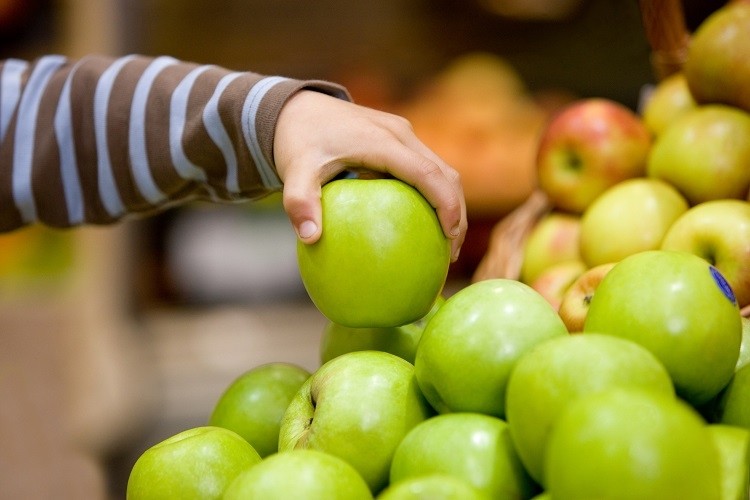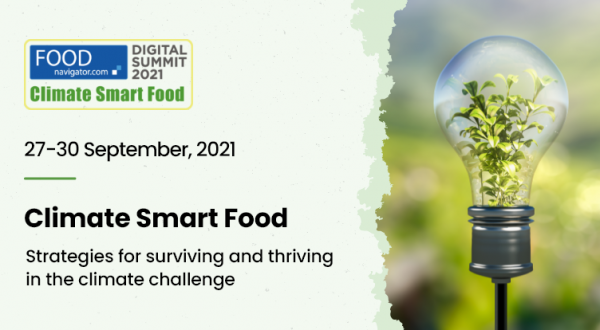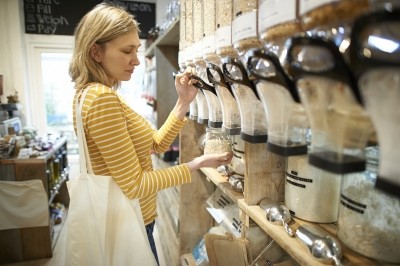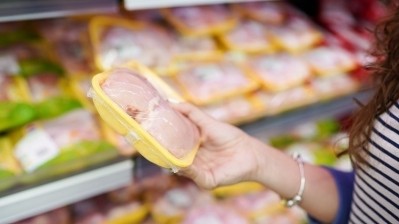From free fruit to on-pack health claims: What opportunities exist to promote healthy and sustainable diets?

Globally, the leading cause of ill health is unhealthy diets. At the same time, food production is responsible for a whopping 24% of the world’s greenhouse gas emissions.
This needs to change, suggested Hannah Skeggs, Nutrition & Scientific Affairs Manager at commercial insight and social impact organisation IGD. And that change needs to be made easy for shoppers.
“So easy, that it’s almost accidental for consumers,” she told delegates at FoodNavigator’s Climate Smart Food event.
Interrupting consumers a ‘win-win’
Retailers and food companies have a number of tools available to help prompt a switch from less healthy and less sustainable products in-store.
Interrupting shopping missions with placement is one such technique. It can help healthy options stand out in-store and online to enable quick purchasing decisions, according to IGD.
Tesco has leveraged this tool for its Free Fruit for Kids scheme, first rolled out in 2016. Since then, the UK’s largest supermarket retailer has handed out well over 100m pieces of fruit.
The scheme ‘really works’ on three fronts, explained Skeggs at the event: “Firstly, it helps children towards their 5-a-day while shopping in-store, secondly, it helps keep children entertained while the parents have to do the shopping, and thirdly, with the perception that health is too expensive, I guess parents don’t want to take the risk of buying a new type of fruit or veg for their kids to try.
“Here, having first trialled some fruits and veg free of charge to kids, it’s a really good way of trying something…to prompt purchase in the future.”
With this initiative, the framing is important, we were told. Because it is targeting children, it feels ‘special and exclusive’ for them. Further, by positioning fruit as a treat, they will want to eat more of it – which makes it very different to something they ‘should’ eat more of.
According to a recent IGD survey, three-quarters of parents said the Tesco initiative made their shopping trip easier and that it inspires further behaviour change. “Sixty-five percent of kids want to each more fruit and veg thanks to the scheme, and over two-thirds of shoppers actually purchase more fruit and veg.
“It’s a real win-win for Tesco.”
Product placement and signposting healthier products
One obvious technique lies in product placement, which as Skeggs explained, could be as simple as placing a healthy option directly next to its less healthy counterpart.
Renovating product selection is another key tool, the Nutrition & Scientific Affairs Manager suggested. Whiteworths’ Protein by Nature brand is one that at least two of the UK’s largest supermarkets, Tesco and Morrisons, have decided to list.
The microwavable grain, pulse, and bean pouch offerings are targeting younger shoppers and flexitarians by using high protein claims on-pack, explained Skeggs. “And a real convenience offering of just popping it in the microwave and being ready in a couple of minutes.”
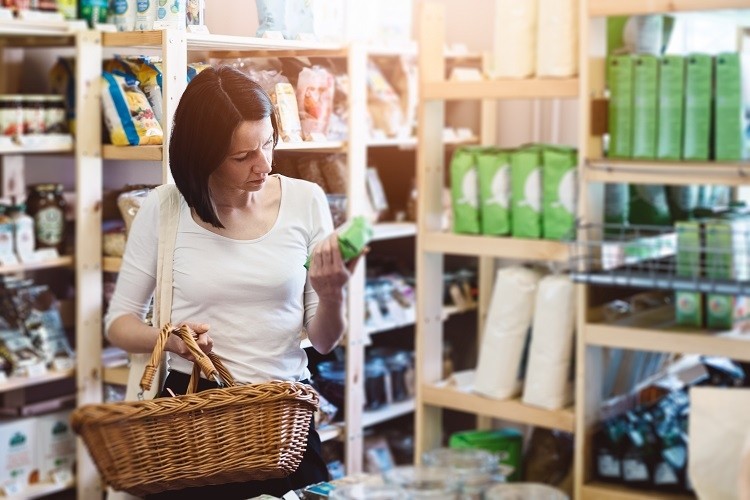
Retailers and food brands can use health claims, roundels and nutrition information to empower healthy choices.
As health is ‘top of mind’ for consumers, IGD’s Skegg’s suggested fruit, veg, grains and pulses be highlighted by using colourful signage and promotions.
“Signposting healthy products can really help to catch the eye of those 60% of shoppers who…are motivated by health.”
Recipe box company Gousto is one such company signposting healthier options online. Categories within its range of meal kids include ‘Lean in 15’, ‘Calorie-Controlled’ and ‘Healthy Choices’.
Challenging cost and taste perceptions
Signposting and challenging perceptions of cost and taste are also worthwhile initiatives.
According to IGD research, cost remains a huge barrier to diet change, with 37% of participants in a 2021 study responding that they perceive healthy, sustainable food to be more expensive.
IGD suggests food players use media, signage and promotions to show that healthy eating can be tasty and budget friendly.
Sainsbury’s has done this by selling selected fruit and veg for 60p each. The initiative also makes food ‘colourful and exciting’, according to Skeggs, and challenges the perception that healthy food is dearer than its alternative.
Secondary barriers also exist, Skeggs elaborated. While less significant than cost, some consumers do associate healthy and sustainable diets with poorer taste.
“Taste is critical. It remains a barrier for about 21% of people, so activations – like we see from Unilever and The Hairy Bikers – can really help people to try something for the first time.”
Skeggs is referring to a collaboration between Unilever brand Knorr and British chef duo The Hairy Bikers. The joint campaign encourages consumers to #CheatOnMeat by trying veggie dishes made with Knorr Veggie Stocks.
Retailers can also ‘hero taste’ by influencing shoppers with recipe cards, on-pack cues and sampling.
